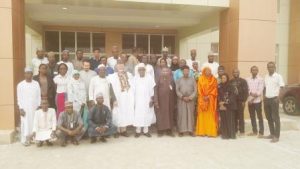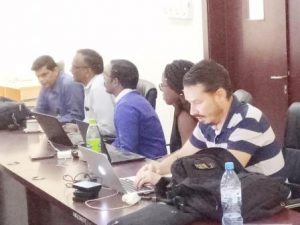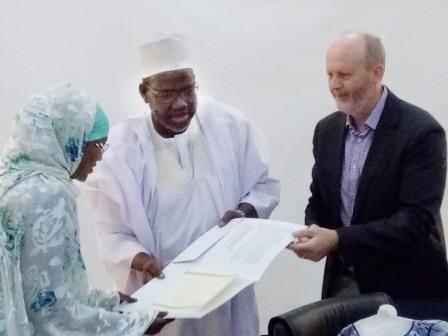Bayero University, Kano’s (BUK) Centre for Dryland Agriculture, (CDA) has exhibited its commitment to the
Climate Change cause, with its efforts at building the capacity of young scientists in using systems analytics for the
management of Climate Change and variability in the semi-arid tropics. This commitment was demonstrated during a
training workshop, organised by the Centre, to check the lack of expertise in systems analytics among young
researchers in Nigeria and the West African sub-region.
The objectives of the five-day training, which held in December, 2017, were to introduce participants to the use of
systems analytics in climate change research as well as train them on the workings of selected crop, climate and
environmental models. It was also aimed at acquainting the participants with modern methods of generating accurate
climate data for use in systems analytics.
Systems analytics are sets of programmes and activities which aid the discovery, interpretation, and communication of
meaningful patterns in data. They rely on the simultaneous application of statistics, modelling, computer programming
and operations research to analyse systems, with a view to providing insight and solutions. Systems analytics are used
continuously, all over the world, to understand the concept of climate change and its impact on agriculture and the
environment.
Speaking during the workshop, Vice-Chancellor of the University, Professor Muhammad Yahuza Bello, commended
CDA for the remarkable progress recorded in building the capacity of local and regional students as well as
researchers and staff of the University. He particularly commended the Centre for engaging five renowned experts to
serve as facilitators for the five-day event.
In his remarks, the Director, International Crop Research Institute for the Semi-Arid Tropics (ICRISAT) Innovation
Systems, Dr. Anthony Whitbread, expressed delight at the quality of his interaction with the participants and called on
them to effectively utilise the facilities available in the Centre for their research activities.
ICRISAT international resource person, Dr. KPC Rao, observed that crop simulation models addressed a number of
questions, including suitable forms of management practice for crop production and changes farmers should expect as
a result of climate change.
In his remarks, the Director, CDA, Professor Jibrin Mohammed Jibrin, recalled that the Centre had been organising
trainings in crops modelling, GIS, and remote sensing, since 2014, to build capacities towards making CDA an
internationally-renowned training Centre in Systems Modelling.
Papers presented during the training included those by Drs. F. M. Akinseye, P.S.C. Traore and A. M. Whitbread.
There were also presentations by Dr. A.Y. Kamara of the International Institute for Tropical Agriculture (IITA) and
Professor Jibrin M. Jibrin. The presentations focused on the use of systems analytics as decision support tools for
increasing agricultural intensification in the face of changing climate as well as the importance of building the
capacity of National Agricultral Research And Extension Services (NARES) in promoting climate risk management.
Participants were also exposed to a new tool, the CCAFC Regional Agricultural Forecasting Toolbox (CRAFT),
which is deployed as an advanced methodology for predicting more accurate climate forecasts in data-scarce regions.
Trainers and participants, who were drawn from wide range of disciplines, including Agriculture, Environment,
Geography, Engineering, Mathematics, Soil Science as well as Economics, were from different countries, including
Nigeria, Niger, Mali, Senegal, Benin Republic, Cameroon, Ethiopia, India and Australia.



